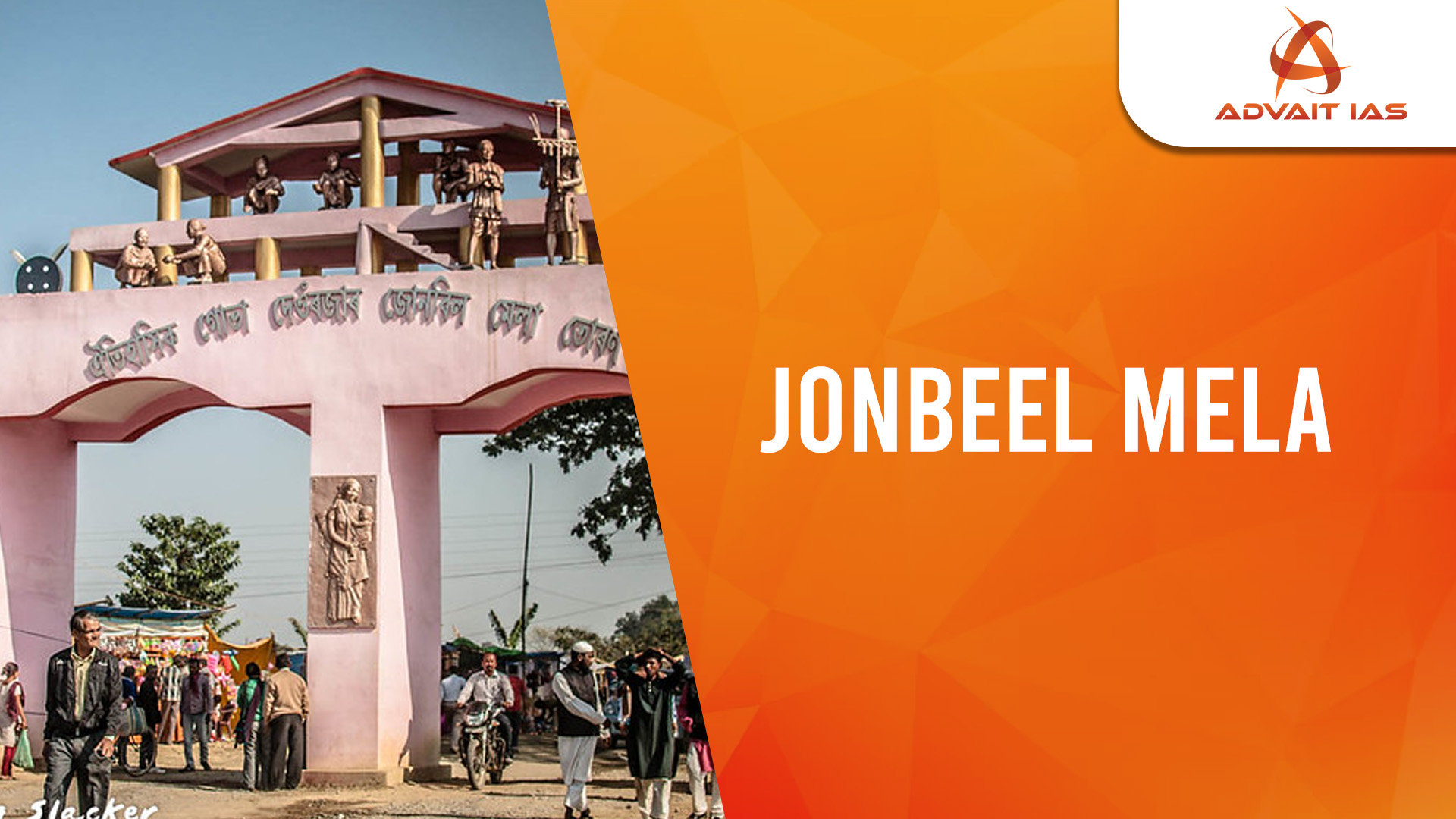- Annual three-day fair held in Dayang Belguri near Jagiroad, Morigaon district, Assam.
- Organized by the Tiwa community, usually held in mid-January after Magh Bihu.
- Famous for reviving the ancient barter system.
Barter System:
- Tribes like Tiwa, Karbi, Khasi, and Jaintia bring goods such as ginger, turmeric, and herbs.
- Exchanged with local plains people for rice, fish, and other items.
- Promotes economic and cultural interaction among diverse communities.
Cultural Festivities:
- Traditional dances, music performances, and handicraft exhibitions.
- Activities include cockfights, fish markets, and displays of local crafts.
- Celebrates the rich cultural heritage of Assam.
Community Fishing and Agni Puja:
- Begins with community fishing in the crescent-shaped Jonbeel wetland.
- Agni Puja (fire worship) performed to pray for humanity’s well-being.
Royal Involvement:
- The Gobha Raja (traditional king of the Tiwa community) plays a central role.
- Collects customary taxes from subjects during the fair.
- Arranges a community feast on the bank of Jonbeel to symbolize unity.
Significance:
- Acts as a confluence of economic exchange and cultural celebration.
- Promotes harmony and brotherhood among Northeast India’s tribes and communities.
- Preserves and showcases age-old traditions and practices.
This format highlights the fair’s unique elements and its importance in fostering cultural and economic ties.






